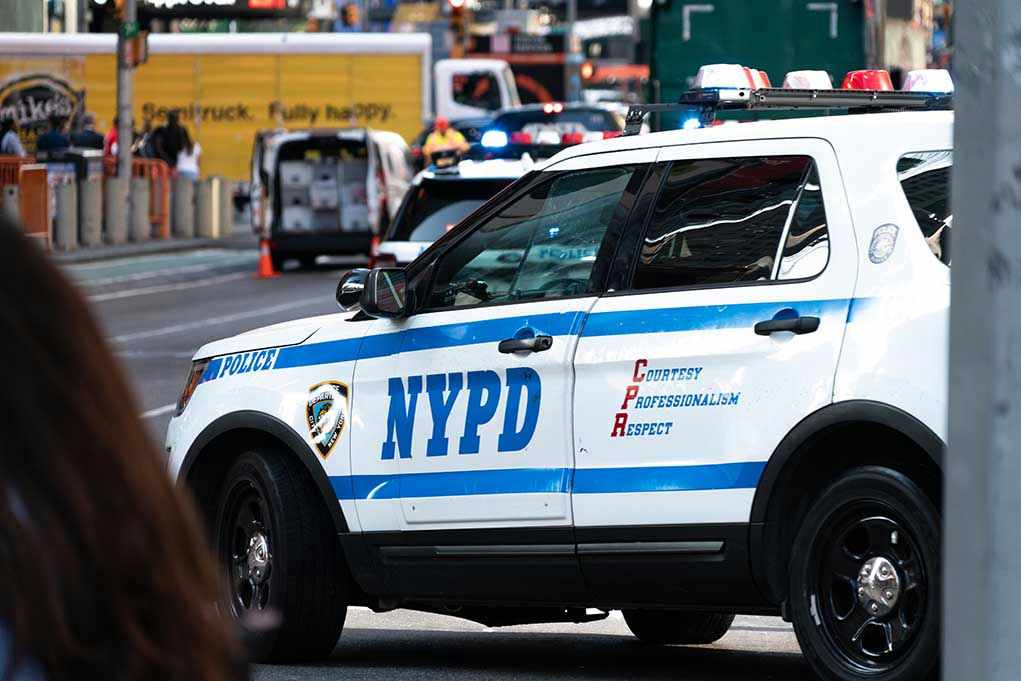
A decorated former NYPD detective who served on the mayor’s elite executive protection detail exposes Bill de Blasio’s anti-police attitudes and volatile behavior in a bombshell memoir that reveals the dysfunction within City Hall during one of the most turbulent periods in New York’s history.
Story Highlights
- Ex-NYPD Detective First Grade Katrina Brownlee claims de Blasio “didn’t like police officers” in new tell-all memoir
- Brownlee served on the elite mayoral executive protection detail, giving her unprecedented access to City Hall operations
- The memoir reveals tensions between the mayor’s office and NYPD during a critical period for law enforcement
- Her story spans from domestic violence survivor to top-tier detective, offering unique credibility on police-community relations
Inside Access Reveals Anti-Police Sentiment
Katrina Brownlee’s memoir “And Then Came the Blues: My Story of Survival on Both Sides of the Law” provides an unprecedented insider’s view of the de Blasio administration’s relationship with law enforcement. Having served on the mayor’s elite executive protection detail before retiring as a Detective First Grade—the NYPD’s highest detective rank—Brownlee possessed unique access to observe the mayor’s true attitudes toward police officers. Her claims that de Blasio “didn’t like police officers” align with conservative concerns about progressive politicians undermining law enforcement during a critical period when officers needed strong leadership support.
Elite Detective’s Remarkable Career Journey
Brownlee’s path to the mayoral protection unit began after she survived being shot ten times by her fiancé in 1993, an incident that initially received inadequate police response. This traumatic experience motivated her to join the NYPD in 2001, where she excelled in Brooklyn patrol assignments and high-risk undercover operations targeting narcotics and prostitution. Her exceptional performance earned her selection for the mayor’s executive protection detail, a pinnacle assignment requiring absolute trust and discretion. This progression from crime victim to elite protector gives her revelations about mayoral attitudes exceptional credibility and insider authority.
Exposing Administrative Dysfunction Under Progressive Leadership
The memoir’s revelations about de Blasio’s anti-police sentiment come during a period when progressive policies were already straining police-community relations and officer morale. Brownlee’s unique position protecting the very mayor who reportedly harbored negative feelings toward her profession highlights the dysfunction that characterized the administration. Her insider perspective validates conservative concerns about progressive leaders who publicly support law enforcement while privately maintaining hostile attitudes. This disconnect between public messaging and private sentiment likely contributed to the deteriorating relationship between City Hall and the NYPD during de Blasio’s tenure.
Credible Voice on Law Enforcement Challenges
Brownlee’s dual perspective as both a domestic violence survivor and decorated police officer provides unmatched credibility in discussions about law enforcement effectiveness and leadership support. Her rise through the ranks to serve on the mayor’s protection detail demonstrates the NYPD’s merit-based advancement opportunities while simultaneously exposing the challenges officers faced under hostile political leadership. The memoir serves as both a testament to individual resilience and a warning about the consequences of political leaders who undermine the very officers sworn to protect them and the community.
Her story resonates with conservatives who witnessed the deterioration of police-community relations under progressive leadership, providing insider confirmation of suspected anti-police attitudes that ultimately harmed public safety and officer morale throughout New York City.
Sources:
And Then Came the Blues – Akashic Books
And Then Came the Blues – Bookshop
And Then Came the Blues – Barnes & Noble

